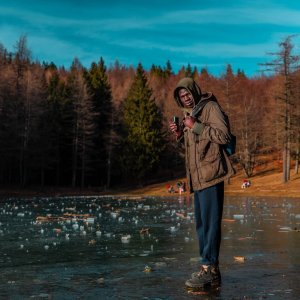I am Malamine, a peer researcher who collaborates on the MIMY research project. MIMY is research on the migration of people to Europe, in my case Italy, their stories, experiences, and expectations.
Y. and S. are two people of Moroccan origin aged 36 and 65.
The youngest arrived in Italy when he was a child with his family and then began his studies in Italy at 6. Although his childhood memories show a notable nostalgia for his father, integration was not complex with the help of the school, the community, and adapting to a culture and a language different from his own. For him, the biggest mistake in integration is to “seek identity”, every person should find their identity (without prescriptions of what is best for everyone), considering the new culture and personal needs.
S. instead arrived in Italy in the 90s alone, and with a lot of suffering during the journey, he was living without legal documentation, and for six months, he worked irregularly.
For him, there were a lot of difficulties. Finding a home, the onset of a health condition prevented him from working for some time, and the consequent lack of access to a pension. Bureaucracy, again! 19-years of work and the inability to enjoy a decent retirement. My advice to young people is to be ambitious in their projects and listen to people's positive or negative experiences because they help orient themselves towards the future.
Listening to these stories taught me that listening is the first weapon to combat fear, hatred, and discrimination of all kinds.
What I would like to deepen in the future is making peace live in our communities and territories.


